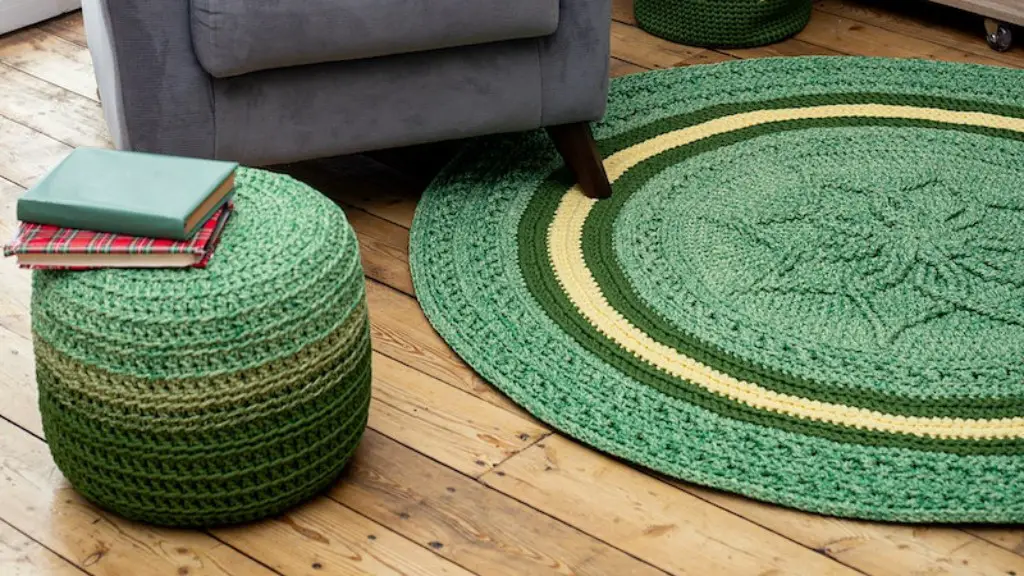Removing carpet may help lessen allergy symptoms in some people because it eliminates a source of dust mites and other allergens. Dust mites are tiny creatures that thrive in dirty environments and often cause allergic reactions in people who are sensitive to them. Other allergens, such as pet dander and pollen, can also be found in carpets and may cause reactions in people who are allergic to them.
There is no definitive answer to this question as everyone’s allergies are different and what helps one person may not help another. However, many people with allergies find that removing carpet from their home can greatly reduce their symptoms. Carpet can harbor dust, pollen, and other allergens that can trigger an allergic reaction, so eliminating it from the home can be beneficial. If you have allergies and are considering removing carpet, talk to your doctor first to see if it is the right decision for you.
Should you remove carpet if you have allergies?
If you have allergies or asthma, removing your carpet may be your best option. It’s also possible to be allergic to the materials used to construct carpeting. Talking with an allergist can also help.
If you have asthma, it is important to be aware that carpeting can be a reservoir for allergens that can trigger an asthma attack. Carpeting in the bedroom can be especially problematic because it exposes you to carpet dust throughout the night. To reduce your risk of an asthma attack, it is important to vacuum your carpets regularly and to keep them free of dust and other allergens. You may also want to consider replacing carpeting in your bedroom with hardwood floors or another type of flooring that is easier to keep clean.
Does removing carpet reduce dust
If you want to reduce the amount of dust in your home, one of the best things you can do is get rid of rugs and carpeting. Floor coverings are major dust producers and dust magnets—and the fuzzier they are, the more dirt they harbor. Plus, they’re difficult to clean thoroughly. If you have hardwood floors, consider polishing them to create a smooth surface that won’t collect as much dust.
If you suffer from allergies, the same mold and dust mites that can inflame your lungs can also give you red eyes or a runny nose. Buildup in your carpet can easily trigger an allergy attack or make your day-to-day life just a little more unpleasant. To keep your allergies under control, be sure to vacuum your carpets regularly and try to keep them as free of dust and dirt as possible.
How do people live with carpet allergies?
If you suffer from allergies, it’s important to take extra care of your carpets. Many allergy triggers, like pollen, can move into your home on your shoes. Vacuum regularly with a HEPA filter to help reduce the amount of allergens in your home. Shampoo and/or steam-clean your carpets at least once per year to help remove any build-up of allergens.
Old carpet can be full of dust, so be sure to wear a dust mask. Protective gloves should be worn to protect hands from staples and while cutting the carpet and handling tack strips.
How often should you vacuum your carpet if you have allergies?
While a regular vacuum filter will do a decent job of removing most allergens from your home, If you or someone in your home suffers from allergies, it’s worth investing in a vacuum with a HEPA filter. This will ensure that even the smallest allergens are removed from your home, making it a safer and more comfortable environment for everyone.
If you’re looking for a way to reduce allergens in your home, steam cleaning (also known as hot water extraction) is a great option. Hot water can kill dust mites, which are a common allergen, and most professional carpet cleaners use this method.
Can carpet make you congested
There is no clear relationship between having carpet floors and various cold/flu symptoms, such as a runny nose, congestion, nausea, or itching. However, there may be a connection between carpet floors and skin conditions like eczema.
If you have carpet and upholstered furniture in your room, you need to be extra careful about dust. Make sure to wash your bedding and vacuum your carpets and rugs often to keep the dust levels under control.
Why you should remove your carpet?
Carpeting can hold many allergens which may affect the health of your family. These may include mold, dirt, pet hair and dander, pollen, and dust. And, no matter how you may clean your carpet, it may still be affecting those with severe allergies.
Carpet has changed a lot over the years, but today, it typically lasts anywhere from 5 to 15 years. The lifespan of a particular carpet depends on the type of carpet, the carpet cushion, the carpet fibers, and the amount of wear and tear the carpet is exposed to.
Why am I always congested in my house
There are a few reasons why your room might feel stuffy. One possibility is that the air isn’t circulating properly. This could be due to insufficient insulation or a worn-out HVAC system. Another possibility is that there is too much humidity in the air. This can be caused by a number of things, such as cooking, showering, or even having too many plants in the room. Whatever the cause, there are a few things you can do to fix the problem. One option is to open a window to let in some fresh air. You can also try using a fan to circulate the air. If the humidity is the problem, you can try using a dehumidifier.
Polyester is also a great anti-allergy carpet option as it is made from synthetic fibers that do not allow mold to grow. It is also less likely to absorb pollen and other allergens, making it a great choice for those with allergies.
What to do after ripping up carpet?
When you’ve removed all the carpet and padding, use pliers to remove all the staples. Cut the padding into strips and roll it up, just as you did with the carpet. On a concrete floor, the padding will be glued in place, so big chunks of padding will remain stuck to the floor. To remove them, use a floor scraper.
Allergies are a common condition that affects many people. There is no cure for allergies, but there are treatments that can help to relieve symptoms. avoidance of allergy triggers or reducing contact with them can help to prevent allergic reactions. Over time, immunotherapy may reduce the severity of allergic reactions.
Final Words
There is no one-size-fits-all answer to this question, as the best way to mitigate allergies will vary from person to person. However, some people with allergies may find that removing carpet from their home can help lessen their symptoms. Carpet can harbor dust, mold, and other allergens, so eliminating it may create a cleaner and healthier environment. Additionally, hard surface floors are easier to clean and keep free of allergens than carpet. If you are considering removing carpet due to allergies, speak with an allergist or other medical professional to determine if this is the best solution for you.
Many people believe that removing carpet will help with allergies, when in reality it does not. Allergies are caused by many different things, not just carpet. So removing carpet will not guarantee that allergies will go away.





